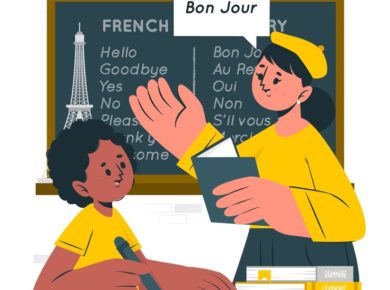It is a well-known truth that teenagers use technology more frequently than ever as necessary devices become more affordable. There is the perhaps unexpected finding that these same adolescents are much more consciously aware of what they consume and the potential effects it may have on them. What do teenagers themselves think about it all? There is ongoing worry among parents about the effects of gaming on children’s wellbeing.
According to the report, the majority of teenagers don’t mind if teens play with items they shouldn’t. The main justification offered by young teens was that they thought their games were just games. Thus, they wouldn’t be affected by the themes discussed. The opinions differed according to age, with younger kids being much more concerned about underage gaming than their older friends.
According to studies, 4 out of 10 teenagers say they occasionally become addicted to the internet, and as they get older, this percentage rises. One explanation for this is the increasing reliance on connections that form as teenagers become older, which unquestionably increases reliance on social media platforms and internet-based communication. Teenagers can now play video games online and freely chat with their friends utilizing built-in console technology, thanks to recent advancements in gaming.

More you should know about teens and gaming
Teenagers commonly report feeling uneasy or terrified after engaging in any internet activity. More than a quarter of teenagers said they had seen anything online that made them feel anxious, sad, or afraid. This may sound like a horrible truth, especially in light of the reports of verbal abuse, bullying, and threats of rape directed at young girls who play online video games. Because these games have a minimum age requirement of 16, it should be the responsibility of parents to make sure that their children are not exposed to language or behavior that is unsuitable for their age.
It is no secret that a person’s age is concealed behind a console. At this stage, parents and teachers must collaborate to support the development of the maturing teenagers’ moral character. Teachers need to understand their students and should know about teenagers’ emotions and their way of thinking. Only then a teacher can relate better to their students.
How gaming can help with teenagers’ skill development
Educational games are being used in classrooms more and more to learn new information or develop new skills. Schools are increasing their attempts to engage with current teen trends in an effort to inspire teenagers to engage with the curriculum. It appears that gamification teaching strategies may gain popularity soon.
You might question why play and games should be incorporated into schooling. Is it really a smart move? Children should engage in play as an extracurricular activity to enjoy themselves outside of the classroom. But there are other games used in the classroom. Teachers can introduce lessons in a fun way by using games, and students can use them to practice their grammar and vocabulary or act out scenarios where they will use their language in the real world.
No matter your age, playing games is a terrific method to learn, but teenagers gain the most from them. Children can practice their knowledge and their shortcomings through play. They can experiment by making mistakes, figure out solutions to issues, determine the most effective tactics, and develop new abilities and confidence. Children learn to think critically and acquire other skills through play, including those that will aid in language acquisition. Games are such fantastic learning tools because they strike the perfect balance between fun and difficulty.
What are classroom games, and how is it beneficial?
Teachers may use classroom games to supplement homework or encourage teenagers to practice new skills. Depending on your preferences and the needs of your students, you can employ technical tools, physical exercise, or an art-based medium to play classroom games. Some teachers use games in the classroom to foster teamwork and provide opportunities for personal development. Classroom games are a great way to harness the power of play and use it to enhance your students’ learning experience. Not only are games fun and engaging, but they can also:
- It aids teenagers in focusing and improving their concentration while studying.
- Educational games can offer specific content for student learning and reinforcement in problem/solution scenarios.
- Students can navigate multiple game levels by using their understanding of skills, such as math facts or historical dates. It helps to improve their memory.
- Students will learn about sustainability, urban planning, and energy through courses and real-world scenarios.
- It presents educational content in a novel and engaging manner to teenagers.
- It gives the entire class a chance to get to know one another better.
The Conclusion
Since every classroom is unique, teachers should constantly test out new activities and adapt them to the needs of their students. Classroom games can help you maintain activities instructive and enjoyable, whether you’re trying to keep your students’ attention during a lesson, keep them busy during an indoor recess, or help them develop cooperation skills.
If any teachers are willing to restart their careers or want to grow in teaching, Classplus is there to help you. Get your own coaching app in less than 60seconds with amazing features made just for you. Connect now to know more.




